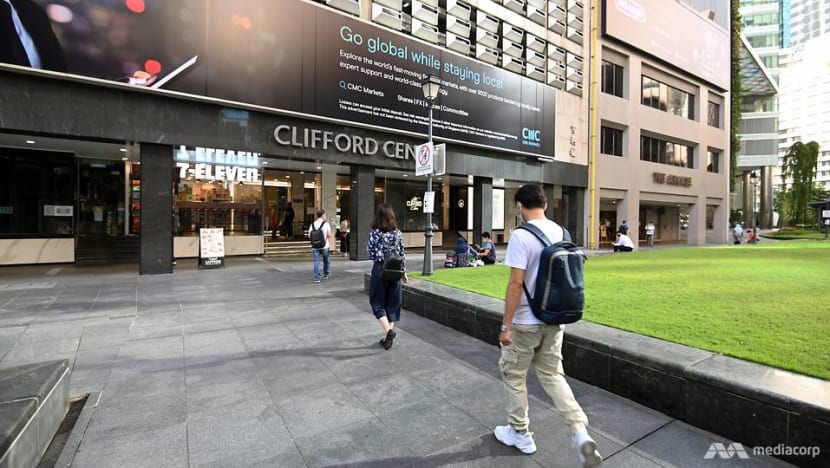Employers cannot insist job seekers declare last-drawn pay, 'practical approach' should be taken: Josephine Teo
https://www.channelnewsasia.com/singapore/jobseekers-declare-last-drawn-pay-employers-cannot-insist-648041
Employers cannot insist job seekers declare last-drawn pay, 'practical approach' should be taken: Josephine Teo

Workers at Raffles Place on Jun 2, 2020, the first day after Singapore's circuit breaker period. (Photo: Marcus Ramos)
SINGAPORE: There are no rules stating that job seekers must declare their last-drawn salaries, and employers cannot insist they do so, said Minister for Manpower Josephine Teo in Parliament on Thursday (Jun 4).
Instead, a “practical approach” should be taken on whether employers are allowed to ask for such information, she said, as a candidate's last-drawn salary can help employers gauge his or her seniority or to make an appropriate job offer.
Mrs Teo was responding to Member of Parliament Saktiandi Supaat’s questions on how this practice affects employability and salary packages of job applicants, and whether it should be stopped.
READ: Employers that 'disguise retrenchments' may have Jobs Support Scheme, work pass privileges withdrawn: Josephine Teo
Employers who use last-drawn salaries to screen job seekers risk losing out on good candidates who are prepared to adjust their salary expectations, especially in current times, said Mrs Teo.
"It is similarly unwise for employers to overlook the longer track record of the applicant, and make an offer based solely on the last-drawn salary especially if the last-held position was an interim one," she added.
“If a job seeker chooses to provide salary information, employers should use it carefully.”
In response, Mr Saktiandi said that job seekers like fresh graduates might be wary of taking up a job that offers below the median pay, for fear that their future salaries will always fall behind if it is pegged to what they previously drew.
He asked if the authorities could look into the issue ahead of a post-COVID-19 environment, while referencing the Paycheck Fairness Act passed by the US Congress in 2019 that addressed the conflict over putting down one’s salary in a job application.
“My concern is whether some of these salary payslip practices by employers will actually lead to further negative externalities in the future, thus exacerbating unemployment numbers,” he said.
READ: Unfair clauses in employment contracts: How can employees be better protected?
Citing her previous experience as a human resource director, Mrs Teo replied that firms usually look at multiple factors - aside from a person’s last-drawn salary - when they make an offer.
If a company bases the applicant’s “worth to the organisation” solely on the last-drawn pay, then, she said her advice to the job seekers would be: “Look for another employer. This is not a company that you should spend too much on.”
“And actually, our partners … will be more than happy to work with the job seeker to explore other options.”
She added: “Don’t spend too much time and waste your energy with these kinds of employers who cannot see beyond one number.”
MP Louis Ng asked whether the Government would study if the issue has contributed to the gender wage gap in Singapore, because a study published in April studying California’s ban on salary declarations found that the new law narrowed the pay difference between men and women in the state.
Mrs Teo said she thinks there are other more prominent factors causing the problem.
“We have a lot of things on our plate and useful studies we will take a look at them, but it will not be realistic to chase down every study,” she added.

Comments